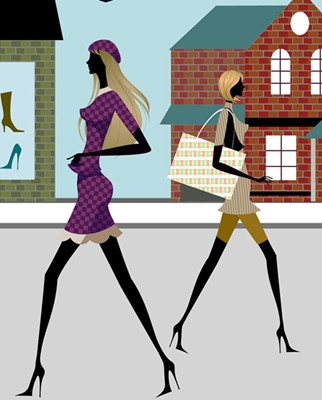Advertising and media companies often get lobbied to use models that represent the average woman's body—rather than ultra-thin models, whose images may influence some women to have an unhealthy relationship with food. Now a study supports that idea that observed images affect what people consider to be acceptable body types. The report is in the journal PLoS ONE.
廣告和媒體公司總是得到游說,希望他們聘用代表普通女性身材的模特,而不是超瘦的模特,因為瘦模的形象可能會影響某些女性養成不健康的飲食習慣。目前一項研究顯示觀察到的圖像會影響什么樣的身材被認為是可接受的。這項報告發表在《公共科學圖書館·綜合》上。

Researchers surveyed subjects about their opinions of their own bodies and those of others. Then they presented the subjects with photos of large or thin women. Some photos were of beauty queens in evening gowns or other high-status clothing. Other photos were of women who were either very large or very thin, wearing neutral grey leotards. Following those viewings, the subjects were again surveyed about their body preferences.
研究人員調查了受試者們對自己和別人的身材的看法。他們向受試者展示了身材或胖或瘦的女士照片。有些照片是身著晚禮服或者其他顯貴衣服的選美皇后。其余的則是超胖或超瘦的,身著中性的灰色緊身衣的普通女性。根據那些觀點,再次調查受試者們偏好哪類身材。
Subjects who originally preferred thin bodies only increased their preference for thinness after being shown photos of thin women. But they decreased their preference for thin bodies after being shown photos of larger women. The attire of the women in the photos made no difference to the subject's latter preference.
原本就偏愛苗條身材的受試者在看過纖瘦女人們的照片后變得更加愛瘦。但是在看過身材偏胖的女士的照片后,她們對苗條身材的偏好減弱了。照片中女士的服裝對受試者的偏好沒有影響。
The researchers say that this study provides strong evidence that images of female bodies promoted by the media and ad agencies could have a real impact on women's preference and subsequent thoughts about body type.
研究人員說道:這項研究向人們提供了強有力的證據,證明媒體或者廣告公司推崇的女性形體圖片確實能影響女性對身材的偏好和后續行為。
來源:可可英語 http://www.ccdyzl.cn/broadcast/201301/221672.shtml












